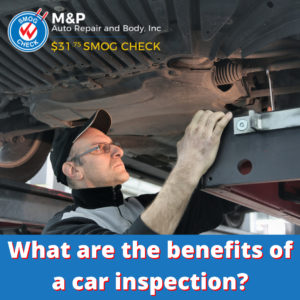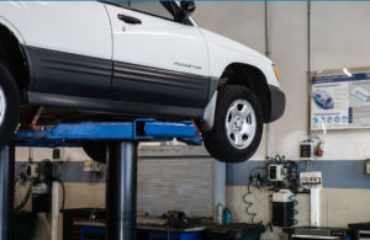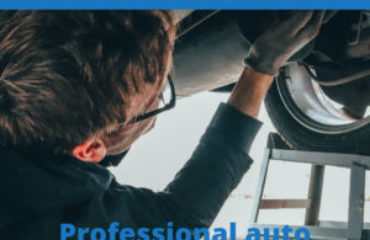There are many benefits to having a professional mechanic take a look at your vehicle and can help avoid future, more costly issues. Not only do inspections offer peace of mind, but they also ensure that your car will run as efficiently as possible and avoid breaking down. Plus, there’s the added bonus that you might save a few bucks if any repairs are needed!
Whether you’re due for an oil change, or something (or everything) is starting to seem off with your vehicle, getting a professional mechanic to take a look can help avoid future and expensive issues. Not only do inspections offer peace of mind but they also ensure that your car will run as efficiently as possible and avoid breaking down.
 What you need to know before buying a car.
What you need to know before buying a car.
Buying a car is a huge investment and it’s worth doing your research before you sign on the dotted line. Whether you’re buying from a dealer or private seller, there are some important questions that you need to ask:
- What is the vehicle history?
- Has it been involved in an accident?
- How many owners have it had?
- When was the last time it was serviced?
- What’s the current condition of the vehicle?
- Are there any outstanding breakdowns or repairs on record for this model of car?
- How much does it cost to service?
Car inspections can ensure that your car will run as efficiently and safely as possible and avoid breaking down. Plus, there’s the added bonus of potentially saving yourself some money!
What questions should be asked to ensure that your vehicle is in optimum condition?
When you get your car inspected, it’s important to know the right questions to ask!
- What are all of the recalls on my car?
- Does the fuel injector need to be replaced or repaired?
- Is there any evidence of damage near my engine area (water corrosion, oil stains)?
- How many miles per gallon does it currently get on gas? What type of fuel filter do I need for this year and the make of my car?
- Is there coolant leaking near the headlight or brake light assembly areas? Do I need more than 1 air filter for my vehicle? Does the air pressure low when you press the brake?
- What type of oil is recommended for this car and what is the filter type? Do you recommend an oil change now or should I wait? Can I use synthetic oils in my car? Our windshield wipers are worn out, do they need to be replaced soon.
- Does it pass smog check if yes/no?
10 warning signs, when it’s time for an inspection.
1. The engine light comes on.
2. Your car doesn’t have enough power to accelerate or climb hills.
3. You notice that your rotors are wearing down quickly or your brake pads are wearing down quickly.
4. There is a leak under the hood, near your water pump, radiator, thermostat, power steering belt, or battery.
5. The exhaust has an odor or the oil smells burnt.
6. You find fluids leaking underneath the car when you park it at night, or when you go to start the car in the morning such as oil and coolant fluid leaks from motors and power steering units respectively.
7. There is a difference in the way the car looks on the outside and on the inside.
8. Your windshield wiper fluid is low or there is water leaking into your cabin from beneath your windshield wipers.
9. The air filter is too dirty to do its job and needs to be replaced ASAP, as do any other filters for this matter such as fuel filters and oil filters.
10. Your car sounds like it’s idling too high and/or not accelerating properly and smoothly.
The most common problems with cars, and how to prevent them.
The most common problems with cars are due to neglect and lack of routine maintenance. Preventing these problems can be as easy as following a routine of oil changes, air filter changes, tire rotations, and battery checks. If you feel like something is wrong with your car, don’t wait-call your mechanic! A routine check-up can sometimes uncover these little problems before they become costly repairs.
A good inspection will tell you the current condition of your car and if there are any parts that need to be fixed or replaced soon to prevent future breakdowns. It is also a great way to determine how much longer the life expectancy of certain parts is, such as changing the timing belt every 60,000 miles or the brake pads/rotors by 20-30,000. The best place to do your inspection is at a trusted repair facility you have used before, as they are more likely to highlight problems with brakes etc. so that you avoid unnecessary damage caused by neglecting it!
Preventative care is the best way to ensure that your car stays running smoothly and efficiently without any major, costly issues. Not only can it help you avoid potential breakdowns on the road, but it can save you hundreds if not thousands of dollars in repairs. A typical
What should I do if my car doesn’t pass inspection?
If your car does not pass inspection, it does not necessarily mean that you will need to buy a new one. This is because there are still plenty of options that you can take to help improve your vehicle’s performance. Some of these include getting a tune-up or replacing the engine oil and filters. If the problem persists, then you need to take your car to the experts for them to diagnose the problem and find out what needs to be done!
Car inspections can help in several ways. Maybe you’re having car problems, but not enough to take it into the shop? Or maybe you’re just checking your car’s health before an upcoming road trip. Whatever the case may be, get your car inspected regularly. Keeping on top of necessary repairs will keep you safe and avoid costly breakdowns on the road.
What are the tell-tale signs of an auto mechanic scam?
Here are a few tell-tale signs of an auto mechanic scam.
1. Does the “shop” immediately tell you more problems with your car without performing a basic inspection?
2. Is the mechanic going to diagnose all of your car’s problems before inspecting it?
3. Does the mechanic say that repairs for each problem will cost over $500-$1000, or that everything needs replaced?
4. Are they more interested in selling you new parts than repairing your existing ones?
5. Does the mechanic say that repairing your car will cost you more than it is worth with a high-interest rate?
An auto mechanic must complete several steps before they are legally allowed to diagnose the problems with your vehicle. The most important of which is an inspection. During an inspection, most mechanics won’t even tell you about any potential problems without actually looking at your car.
The inspection is meant to be a thorough examination of your vehicle so that they can determine the severity of any potential repairs before you go over all of them together. Mechanics must also be polite and not pushy about their services or parts when you bring in your car for service. If the mechanic is not telling you about any problems without inspecting your car, is pushing for new parts or services, or seems adamant about fixing all of your car’s issues for a high price, then it is best to avoid these people altogether.
Trust our certified experts for your vehicle inspection.
At M&P Auto Repair & Smog Check Inc. we are experts in preventative care and auto repair. All of our automotive technicians and service professionals are certified. Give us a call to schedule your car inspection today at 562-218-1280.


